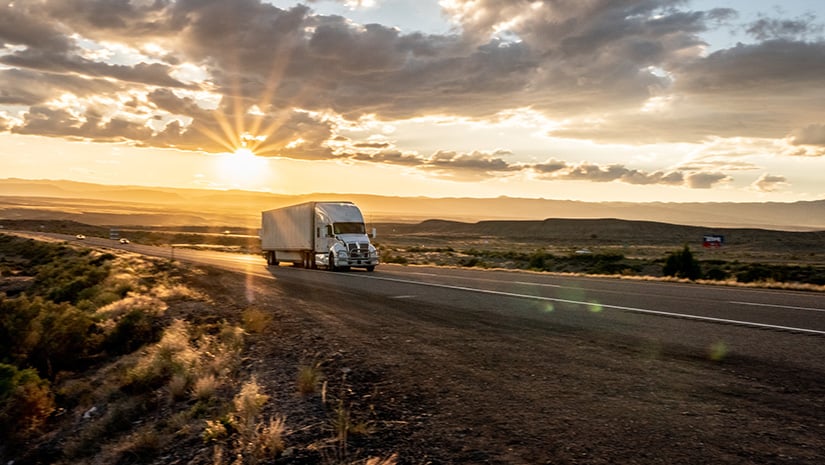
Key insights
- Some states are implementing retail delivery fees to help fund transportation infrastructure.
- Minnesota becomes the second state to impose a retail delivery fee, effective July 2024.
- Colorado makes substantial changes to its retail delivery fee.
- Retailers will be subject to fees on deliveries of tangible personal property over a certain value to these states, although there are some exceptions.
Need help sifting through new state and local tax rules?
In our internet purchasing economy, many states have noticed additional delivery vehicles on their roads. At the same time, many consumers are switching to electric vehicles, so states may be experiencing a downward trend in fuel tax collections. Put that together, and some states are seeing an opportunity to adjust how they fund transportation budgets.
Retailer fees when delivering to certain states
To fund state budgets to maintain current and future transportation projects and infrastructure, Colorado and Minnesota have enacted legislation to impose a delivery fee on retailers that ship products to customers in their state. Colorado was the first state to impose a fee starting in 2022. Minnesota has now followed and will impose a fee starting in 2024.
Businesses must understand the nature of these fees and remain in compliance in Colorado and Minnesota. Other states will likely be looking at the success of these new fees, and a wave of similar fees throughout the country may soon be forthcoming.
Minnesota
Effective July 1, 2024, Minnesota will impose a $0.50 retail delivery fee to help fund transportation infrastructure. The Minnesota retail delivery fee follows in the footsteps of Colorado, which began imposing a similar retail delivery fee on July 1, 2022. The delayed effective date will give time for retailers and the state to implement the fee.
Minnesota’s retail delivery fee will be imposed on each delivery of tangible personal property, subject to state and local sales tax, that equals or exceeds $100, including clothing deliveries. The fee applies only once to each transaction, even if multiple deliveries are made. The fee is not refundable in cases of returns or refunds.
Unlike Minnesota’s state sales tax, which is imposed on consumers, the retail delivery fee is imposed on retailers. Retailers are not required to collect the fee from their customers, but they may choose to do so. Retailers that choose to collect the fee from their customers must label the line item on the invoice “road improvement and food delivery fee.” The fee is not subject to sales tax if it is separately stated.
Not all sales that are exempt from sales tax are also exempt from the retail delivery fee. As noted above, deliveries of clothing were specifically included as being subject to the fee.
Exemptions
Certain products, sellers and purchasers will be exempt from the retail delivery fee:
- Food, prepared food, prescription drugs, medical devices, baby products, and certain motor vehicles
- Sales that take place at the retailer’s business location, such as curbside delivery
- Retailers whose retail sales totaled less than $1 million in the previous calendar year
- Marketplace provider transactions facilitated on behalf of sellers who made retail sales through their platform totaling less than $100,000 in the previous calendar year
- Retail deliveries made to exempt purchasers
The fee will be administered in a similar manner as the state sales and use tax and will be reported on a return created by the Minnesota Department of Revenue.
Colorado
Colorado’s retail delivery fee, which was implemented in July 2022, requires businesses to collect a $0.27 fee on all retail deliveries made by a motor vehicle to a location in Colorado that contained at least one item subject to state sales or use tax.
Recently Colorado amended its retail delivery fee, effective July 1, 2023, to ease the administrative costs and burdens for businesses to comply with collecting the retail fee. The following changes were made:
- The tax rate increased to $0.28 on July 1, 2023.
- Colorado will exempt existing retailers as long as the business had retail sales of tangible personal property, commodities or services in Colorado in the previous year totaling $500,000 or less; new small businesses will also be exempt from the retail delivery fee until the first day of the month at least 90 days after its cumulative sales in Colorado in the current year exceed $500,000.
- Colorado will allow businesses to elect to pay the fee on behalf of their customers without separately stating the fee amount on a receipt or invoice or collecting it directly from the customer (i.e., making the collection of the fee optional from their customers, by paying the fee and absorbing the cost).
How we can help
This simple and low-rate fee can quickly become complicated with numerous nuances. CLA’s state and local tax team can help your business navigate the retailer delivery fees.
